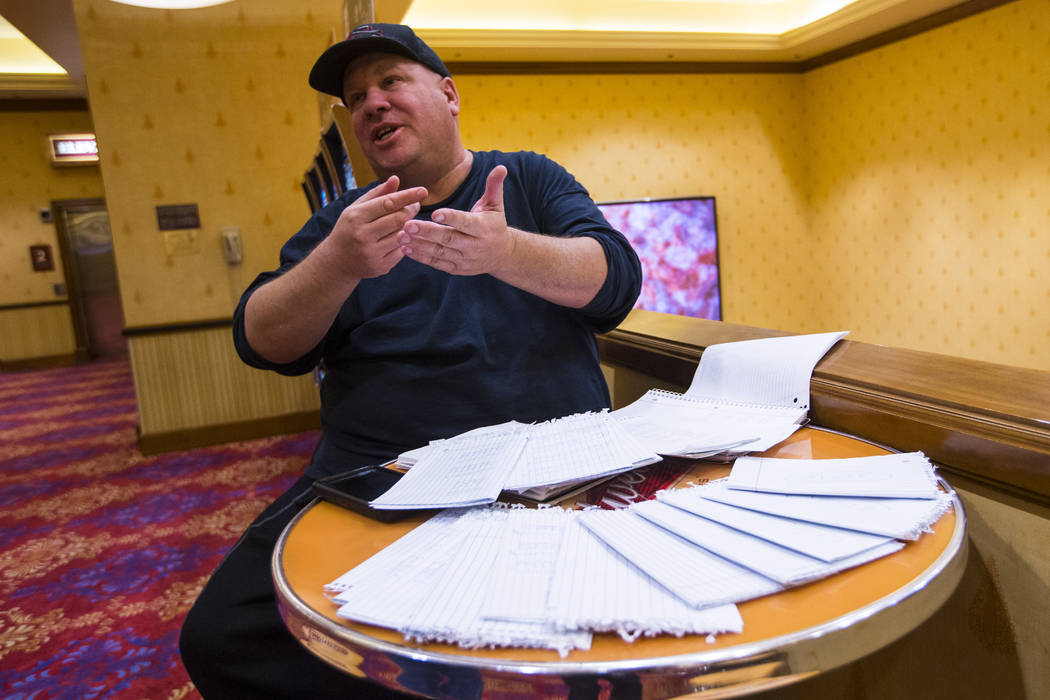Alternate college football playoff system holds up on further review
When the official college football committee’s official playoff rankings were released this week, ESPN made ubiquitous college football analyst Kirk Herbstreit available for comment. One had to call a special number and give a secret password and dial 1, followed by the pound key.
It was much more complicated than it needed to be.
Which is also true of the committee, and the criteria it uses to set the field for a mini four-team tournament that decides the national championship when most agree — at least at the local Buffalo Wild Wings — that a 16-team playoff would make December much more interesting after Army and Navy are done stealing mascots.
In any event, Condoleezza Rice no longer decides who gets to play for the title. The former U.S. Secretary of State was replaced on the committee in 2016 by former Virginia Tech coach Frank Beamer.
But the process still is pretty much the same: Convoluted, with lots of footnotes. Even on Wikipedia:
The committee releases its top 25 rankings weekly on Tuesdays in the second half of the regular season. The top four teams are seeded in that order for the playoff. During the season, the committee meets and releases rankings six or seven times, depending on the length of the season (the number of games is consistent, but the number of weeks those games are played over can vary from year to year). The group, which meets at the Gaylord Texan hotel in Grapevine, Texas, reportedly meets in person up to 10 times a year.
A team’s strength of schedule is one of the most pertinent considerations for the committee in making its selections. Other factors the committee weighs are conference championships, team records and head-to-head results, plus other points such as injuries and weather. Unlike the Bowl Championship Series, the Associated Press Poll, Coaches’ Poll and the Harris Poll, computer rankings are not used to make the selections. Advanced statistics and metrics are expected to be submitted to the committee, though like other analytics, they have no formal role in the decision. Committee members are not required to attend games.
This is why instead of phoning Kirk Herbstreit, I call Dyer Lawrence. He isn’t required to attend games, either.
Keep it simple
Lawrence is a Las Vegas man by way of Boston who coaches youth softball and has devised a system for ranking college football teams that is far less convoluted with minimal footnotes.
Lawrence Points is based solely on a team’s wins and losses and their opponents’ wins and losses. At season’s end, the top four or eight or, preferably, the top 16 in Lawrence Points would advance to a playoff.
Over the past five seasons, 17 of his 20 final four teams have matched up with the committee’s. Except he didn’t have to convene a panel at the Gaylord Texan or excuse the Oregon athletic director from the room when the Ducks were being discussed.
The committee’s top four heading into Saturday: Ohio State, LSU, Alabama, Penn State.
The top four in Lawrence Points: Ohio State, Penn State, LSU, Clemson.
Alabama is 11th in Lawrence Points, and that will teach Nick Saban for scheduling winless New Mexico State. And Georgia is No. 16, and that will teach Kirby Smart for losing to 4-5 South Carolina.
By the time of the conference championship games, Lawrence said the Tide and Bulldogs should be back in their rightful places. Barring upsets, of course, and a potential lack of room service at the Gaylord Texan.
But if the season were to end today, Ohio State would face Georgia in the first round of a 16-team playoff under Lawrence Points. The TV ratings might be higher than the final episode of “Seinfeld.”
When I met Dyer Lawrence last year, he was carrying his points system and data dating to 1969 around in a bulging notebook. Now he has a website (www.lawrencepoints.com) up and running (most of the time, anyway) and a website administrator.
“Actually, he’s just a buddy I met coaching softball,” Lawrence said, but once the kinks get ironed out with the server, you won’t need a secret password to log on.
Contact Ron Kantowski at rkantowski@reviewjournal.com or 702-383-0352. Follow @ronkantowski on Twitter.
Polls are open
The top 16 teams in the College Football Playoff rankings heading into Saturday, and under an alternate system devised by Las Vegan Dyer Lawrence:
— Playoff poll: Ohio State, LSU, Alabama, Penn State, Clemson, Georgia, Oregon, Utah, Oklahoma, Florida, Auburn, Baylor, Wisconsin, Michigan, Notre Dame, Kansas State.
— Lawrence Points: Ohio State, Penn State, LSU, Clemson, Oregon, Auburn, Minnesota, Cincinnati, Michigan, Memphis, Alabama, SMU, Baylor, Florida, Utah, Georgia.
























